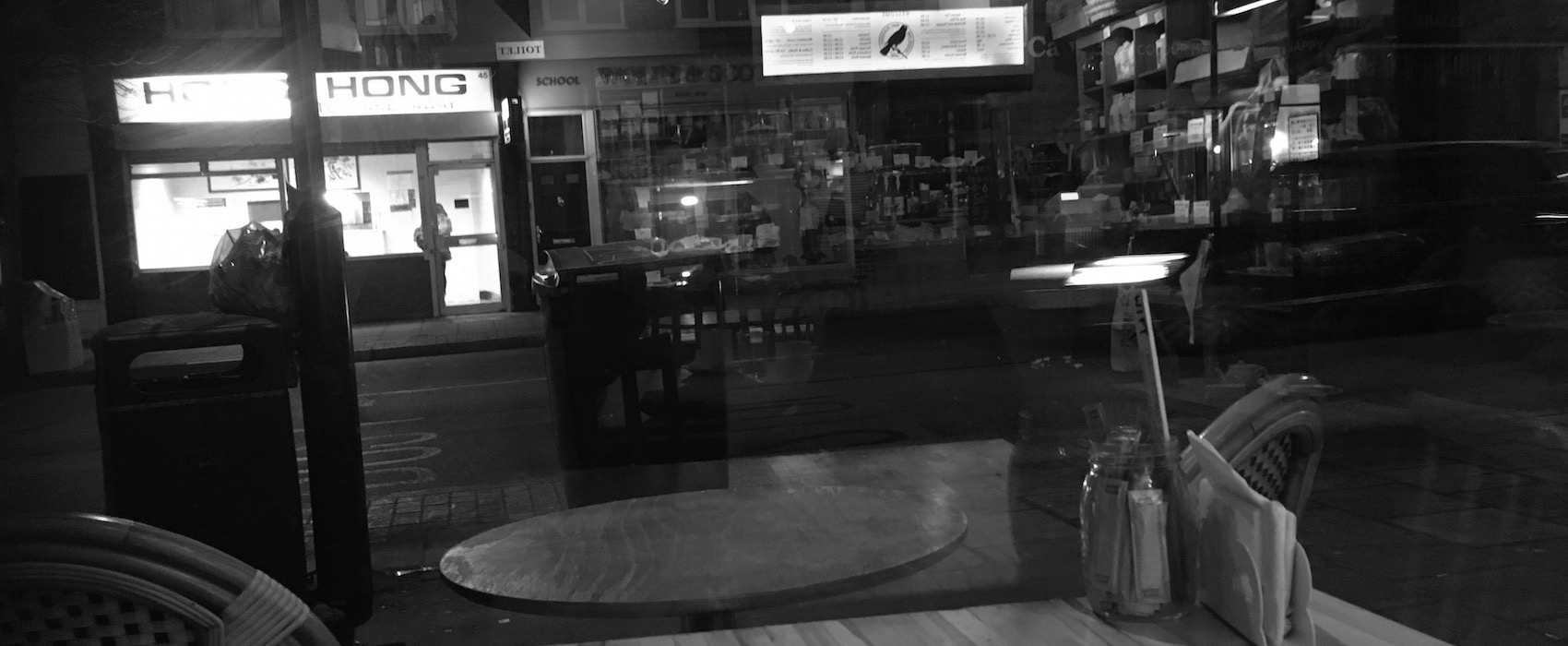It was after my visit to ‘the Jungle’ in Calais that I began to make a connection between the places I have visited over the past year and my emotional landscape after the loss of Mark. A friend said he felt troubled going home to his family and their concerns after seeing the sights of the camp. I realised that although I felt the conflict of leaving the cold, to go home to warmth, a hot shower and a comfortable bed, there was something about the place itself that resonated with my feelings when I looked out over my life. There’s an aching gap my between my position and those of the migrants in every sense, but I knew at that moment I wasn’t surveying the scene from the point of view of someone who had a glossy, held-together, complete life.
Athens, Madrid, Detroit – places where people have known struggle and difficulty – and still do. I thought I was going to those places to recover, and find out about people’s resilience, and maybe I was. But it was in Calais I recognised the deeper sense of alignment that I had with the devastation I saw, particularly in Detroit.
So far this year I’ve stayed in London – a deliberate and necessary decision based on my need to sort out what I’m doing about work, and also to face the reality of life here and begin to shape a new life for myself. I’ve thought about that, written about it, but realise now that it was only notional, only thoughts that one day, maybe, I might have a new life. It’s here back in London that I am squaring up to what a struggle that will be. Withstanding the pain of grief is one thing, but this new stage requires something new, something that I am struggling to grasp. I think about all the stories I’ve heard about cities being destroyed and rebuilt, about others building new lives in the wreckage of capitalism and financial meltdown, and begin to understand that creating something new won’t be easy.
Every week I receive an email from an author of a book I’ve found helpful over the past year, and often the message in it has been very timely… This one, for instance, which came last week, is a reminder that building a new life is possible, but requires a great deal.
Do not be fooled
The person you temporarily become after your loss is not the real you. The identity that’s created while grieving is based upon pain, fear, guilt, anger, sadness, and a broken heart. There is a different identity waiting to be revealed. A real evolution takes place in the brain during the days, months, or years following a loss—and it holds exciting possibilities. It can lead to an extraordinarily happy, productive, and fulfilling new life.Do not hold anything back
You must embark on your reentry journey by holding nothing back. You need to give it all you’ve got. That’s the way to come back to life and achieve your wildest and most exciting, productive, humanly connected, joyful, and all-around best dreams. Ultimately, living a truly unapologetic life is about being proud to feel alive after a terrible loss. Evolution does not take place when our hearts break, but when they mend.Summary
At first it’s hard to make the transition to a new ‘you’. It requires not feeling guilty for smiling again, laughing again….to face your fears head-on by taking risks again. Above all else, this transition requires you to trust again. Trust in others, and to trust in yourself. That was the feeling that will take you the longest to recover. But once you do, it will take you the furthest.No matter how old you are, where you are in the world, or how devastating your grief has been, you can shed your old identity and transform your life. So you ask, how do you create a new life? First, you have to believe it is possible.

Leave a Reply
You must be logged in to post a comment.